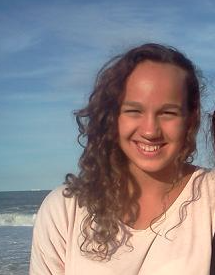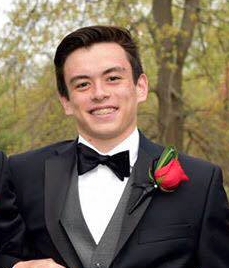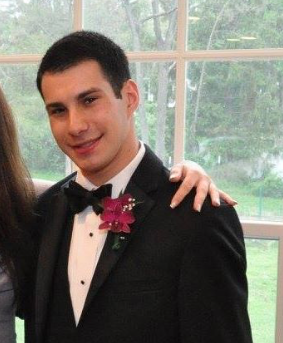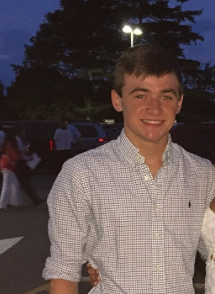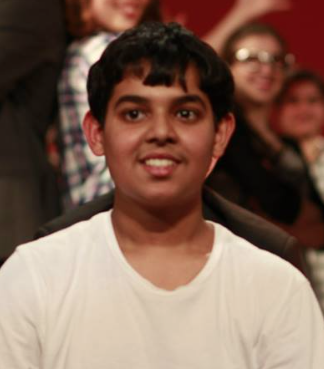Meet the Team
From Left to Right (Row One: Tatum Lawson, Matt Lidz, Dan Griffis, Jeremy Ganes Row Two: Collin Bell, Morgan Reppert, Rohin Verma and Hannah Wilkinson)
Tatum: Before we even began project citizen I was very inclined to learn about stress and mental health among students in school. I presumed that there are large numbers of students who feel the effects of stress and I was correct. As we surveyed our classmates at Ridge High School of all ages we found that 18.7% of the participants said they are stressed all the time, 28.1% said they are stressed almost all the time, and 31% said they are stressed frequently. From our research we concluded that stress and mental health is a major issue in our school as well as the whole country. Our conclusion influenced us to make a policy change that could positively impact students everywhere. My goal in participating in project citizen was to help the community and to do this our group decided it would be best if we held locally funded meetings that would inform and teach people of the community the negative effects of stress and possible ways to avoid them. However, in completing this project I have learned that this is not easy to accomplish. In order to get our policy change passed we need to have supporters who can help us gain even more support in the process and we have to have a precise plan of how we intend to ultimately make our policy change. This can be a difficult process when there are a lot of people who oppose your ideas. You have to prove to people that your policy change will make a huge improvement to the community which can be hard at times. Overall, I have learned that being an active citizen and trying to help others within my community is personally rewarding because helping others improves many people’s lives.
Matt: While working on Project Citizen, I learned a lot about how policy is made and the effort required to be an active citizen in democracy. While making policy, I had to take into account every scenario and unintended consequence of our actions. What seemed like the perfect solution at the time turned out to be more complicated than we thought. As much as we would like to make the school day start later, logistical and financial issues stood in the way. I learned that it is easy to define the problem, but much harder to solve it. We do not live in a utopian society where the perfect policy exists, so we had to settle for good because it is better to take small steps in the right direction instead of no steps at all. Being an active citizen takes a large amount of commitment and effort. It is easier to write out a complaint on a Facebook post, but nothing will change that way. It is harder to get down to work and solve the issues to the best of our ability. Overall, I thought that we worked well as a group. We had a wide variety of opinions and methods that were not always compatible with one another. Despite this, almost everyone worked did his or her part and we were able to craft a strong policy solution to the problem of student stress.
Dan: Project Citizen initially granted us students an opportunity to discover a hidden passion within the fields of law making and problem solving. However, many of us, including myself, took more away from this experience than merely regurgitating statistics and interviewing peers. Through this project, and with the help of my group members, we had unveiled the legitimate seriousness of just a single problem that runs rampant through our town. And with the discovery as to how grand of an effect stressors have on our demographic, I learned that scores of present issues that affect all of our lives have yet to be addressed today. Project Citizen has not only revealed the immensity of how much action is required to solve what might seem like such a simple issue on the surface, but has also forced us to dive into the local legislation process and really discover the inner workings as to how desired laws are to get passed. Issues that I'd normally take granted for when solved with what appears to be a man simply signing a piece of paper now impress me with the amount of hours of debating and research it takes to pass something that the public must respect. As this project comes to an end, I know that I have garnered the knowledge behind passing legislation and how one might institute their idea of change into our nation.
Collin:After working on this project vigorously for the past few months I now have time to reflect on this project. When thinking back to day one, I realized that when picking this topic I was interested in stress effects on student because I thought that I would be able to relate to the results. My favorite part of this project was doing the research and conducting the interviews to further my understanding of the topic. Although at first I realized that I related to the stress some students were feeling, but the problem of mental health and stress goes much deeper than I had thought. One challenge that my group faced was figuring out what the government could do to solve this issue without being too involved. We think that given our research that we found a solution that benefits the victims and the people indirectly affected by others stress levels. One part of this project that I liked was that the work ethic and effort that we put into the project greatly affected the outcome. This is also a reason that I enjoyed this project, it very clearly relates to the real world and future for everyone. This project represents how hard it is to work and how much effort it takes to collaborate with a group to reach a main goal. I believe that this project is a good way to teach us the important lessons about being able to work with others to improve the nation as a whole.
Morgan: I took a lot of way from this project, including a better understanding of how and why teachers do things. It became clear to me that their actions are always in the best interest of their students. Looking back, I think I can better contribute to society and help my peers better handle stress. I also learned working with my peers can be very difficult but a very essential skill in life.
Rohin: Project Citizen has enabled me to really go and out and explore the real problems of Basking Ridge. Since this is a town that has more problems to do with school than any other town, I was willing to commit to the mental health/student stress topic. Throughout the three marking periods, not only did I learn more about my school, but I also learned about how to conduct research in a more efficient manner. Project Citizen also provided me with more information how the government can act and when it chooses to act in such situations. Although the project was stressful itself, I feel that it had a significant impact on my life. Especially when we got into the results of teen stress and mental health, it was not a very welcoming topic. It feels good to know that we proposed multiple solutions in order to attempt solving this devastating issue. As a result, I became a citizen that cares about the society and is ready to complete whatever needs to be done in order to solve the issue.
Hannah:Project Citizen has not only been an opportunity to become more aware of a situation but a chance to, at the very least attempt. to fix that said problem. Most of the time, as a highschool student, all you get to do is study issues that have either already been resolved or you have no ability to fix. Project citizen gives students a chance to actually apply the information they intake, even if it is only in a small way. I really only expected to participate in activities and projects like this in college, and even then I wasn’t always sure if I’d be able to chose what type of work I got to do, but this has been an opportunity to work on something I cared about. As a result of doing this project I now know ways I can actually participate in my community and make a real difference when I notice problems around me and have ideas on how to solve them. Project Citizen has been a learning experience in both content and experience and although the project took a while, it was rewarding in the end to feel like I could have potentially made a difference for the better in my community. Project Citizen has given me a new perspective on what it really takes to change things within a community and how much work people have to put into fixing issues such as the one I worked on for my project.
Jeremy: Project Citizen has been an an interesting and very educational experience for me. First, I learned that policymaking is not as easy as it appears on television debates and coverage. I have learned that any policymaker can recognize that there is a problem , but crafting an effective and marketable solution is an entirely separate level of skill and effort. Hours upon hours of research were done in order to find a factual way to state that Mental Health, student stress and sleep habits were all affected by busy schedules and course loads. This research was able to take our claims from first being simple complaints of distraught high school students, to eventually becoming a nationwide issue whose existence was supported by polls and a scientific evidence. I also learned much about our topic, mental health, stress, and sleep habits. I was alarmed to learn that not only were high school students on average getting less sleep than original thought necessary due to schedules that were out of control, but I also found out that new studies show that teens need even more sleep than medical experts originally thought. Thirdly and finally, I learned several lessons about working in a group. Although this was definitely not my first group project, this was a somewhat new experience because never before had I done a group project that required me to spend almost an entire school year working with the same group of peers on the same project. This required that we try to stay in close contact often so that each step of the project was completed in a timely fashion. At times, I felt that the group dealt with some issues in terms of communicating within the group, but overall I feel like we have overcome those issues and have still produced a solid policy pitch.
.
Tatum: Before we even began project citizen I was very inclined to learn about stress and mental health among students in school. I presumed that there are large numbers of students who feel the effects of stress and I was correct. As we surveyed our classmates at Ridge High School of all ages we found that 18.7% of the participants said they are stressed all the time, 28.1% said they are stressed almost all the time, and 31% said they are stressed frequently. From our research we concluded that stress and mental health is a major issue in our school as well as the whole country. Our conclusion influenced us to make a policy change that could positively impact students everywhere. My goal in participating in project citizen was to help the community and to do this our group decided it would be best if we held locally funded meetings that would inform and teach people of the community the negative effects of stress and possible ways to avoid them. However, in completing this project I have learned that this is not easy to accomplish. In order to get our policy change passed we need to have supporters who can help us gain even more support in the process and we have to have a precise plan of how we intend to ultimately make our policy change. This can be a difficult process when there are a lot of people who oppose your ideas. You have to prove to people that your policy change will make a huge improvement to the community which can be hard at times. Overall, I have learned that being an active citizen and trying to help others within my community is personally rewarding because helping others improves many people’s lives.
Matt: While working on Project Citizen, I learned a lot about how policy is made and the effort required to be an active citizen in democracy. While making policy, I had to take into account every scenario and unintended consequence of our actions. What seemed like the perfect solution at the time turned out to be more complicated than we thought. As much as we would like to make the school day start later, logistical and financial issues stood in the way. I learned that it is easy to define the problem, but much harder to solve it. We do not live in a utopian society where the perfect policy exists, so we had to settle for good because it is better to take small steps in the right direction instead of no steps at all. Being an active citizen takes a large amount of commitment and effort. It is easier to write out a complaint on a Facebook post, but nothing will change that way. It is harder to get down to work and solve the issues to the best of our ability. Overall, I thought that we worked well as a group. We had a wide variety of opinions and methods that were not always compatible with one another. Despite this, almost everyone worked did his or her part and we were able to craft a strong policy solution to the problem of student stress.
Dan: Project Citizen initially granted us students an opportunity to discover a hidden passion within the fields of law making and problem solving. However, many of us, including myself, took more away from this experience than merely regurgitating statistics and interviewing peers. Through this project, and with the help of my group members, we had unveiled the legitimate seriousness of just a single problem that runs rampant through our town. And with the discovery as to how grand of an effect stressors have on our demographic, I learned that scores of present issues that affect all of our lives have yet to be addressed today. Project Citizen has not only revealed the immensity of how much action is required to solve what might seem like such a simple issue on the surface, but has also forced us to dive into the local legislation process and really discover the inner workings as to how desired laws are to get passed. Issues that I'd normally take granted for when solved with what appears to be a man simply signing a piece of paper now impress me with the amount of hours of debating and research it takes to pass something that the public must respect. As this project comes to an end, I know that I have garnered the knowledge behind passing legislation and how one might institute their idea of change into our nation.
Collin:After working on this project vigorously for the past few months I now have time to reflect on this project. When thinking back to day one, I realized that when picking this topic I was interested in stress effects on student because I thought that I would be able to relate to the results. My favorite part of this project was doing the research and conducting the interviews to further my understanding of the topic. Although at first I realized that I related to the stress some students were feeling, but the problem of mental health and stress goes much deeper than I had thought. One challenge that my group faced was figuring out what the government could do to solve this issue without being too involved. We think that given our research that we found a solution that benefits the victims and the people indirectly affected by others stress levels. One part of this project that I liked was that the work ethic and effort that we put into the project greatly affected the outcome. This is also a reason that I enjoyed this project, it very clearly relates to the real world and future for everyone. This project represents how hard it is to work and how much effort it takes to collaborate with a group to reach a main goal. I believe that this project is a good way to teach us the important lessons about being able to work with others to improve the nation as a whole.
Morgan: I took a lot of way from this project, including a better understanding of how and why teachers do things. It became clear to me that their actions are always in the best interest of their students. Looking back, I think I can better contribute to society and help my peers better handle stress. I also learned working with my peers can be very difficult but a very essential skill in life.
Rohin: Project Citizen has enabled me to really go and out and explore the real problems of Basking Ridge. Since this is a town that has more problems to do with school than any other town, I was willing to commit to the mental health/student stress topic. Throughout the three marking periods, not only did I learn more about my school, but I also learned about how to conduct research in a more efficient manner. Project Citizen also provided me with more information how the government can act and when it chooses to act in such situations. Although the project was stressful itself, I feel that it had a significant impact on my life. Especially when we got into the results of teen stress and mental health, it was not a very welcoming topic. It feels good to know that we proposed multiple solutions in order to attempt solving this devastating issue. As a result, I became a citizen that cares about the society and is ready to complete whatever needs to be done in order to solve the issue.
Hannah:Project Citizen has not only been an opportunity to become more aware of a situation but a chance to, at the very least attempt. to fix that said problem. Most of the time, as a highschool student, all you get to do is study issues that have either already been resolved or you have no ability to fix. Project citizen gives students a chance to actually apply the information they intake, even if it is only in a small way. I really only expected to participate in activities and projects like this in college, and even then I wasn’t always sure if I’d be able to chose what type of work I got to do, but this has been an opportunity to work on something I cared about. As a result of doing this project I now know ways I can actually participate in my community and make a real difference when I notice problems around me and have ideas on how to solve them. Project Citizen has been a learning experience in both content and experience and although the project took a while, it was rewarding in the end to feel like I could have potentially made a difference for the better in my community. Project Citizen has given me a new perspective on what it really takes to change things within a community and how much work people have to put into fixing issues such as the one I worked on for my project.
Jeremy: Project Citizen has been an an interesting and very educational experience for me. First, I learned that policymaking is not as easy as it appears on television debates and coverage. I have learned that any policymaker can recognize that there is a problem , but crafting an effective and marketable solution is an entirely separate level of skill and effort. Hours upon hours of research were done in order to find a factual way to state that Mental Health, student stress and sleep habits were all affected by busy schedules and course loads. This research was able to take our claims from first being simple complaints of distraught high school students, to eventually becoming a nationwide issue whose existence was supported by polls and a scientific evidence. I also learned much about our topic, mental health, stress, and sleep habits. I was alarmed to learn that not only were high school students on average getting less sleep than original thought necessary due to schedules that were out of control, but I also found out that new studies show that teens need even more sleep than medical experts originally thought. Thirdly and finally, I learned several lessons about working in a group. Although this was definitely not my first group project, this was a somewhat new experience because never before had I done a group project that required me to spend almost an entire school year working with the same group of peers on the same project. This required that we try to stay in close contact often so that each step of the project was completed in a timely fashion. At times, I felt that the group dealt with some issues in terms of communicating within the group, but overall I feel like we have overcome those issues and have still produced a solid policy pitch.
.
